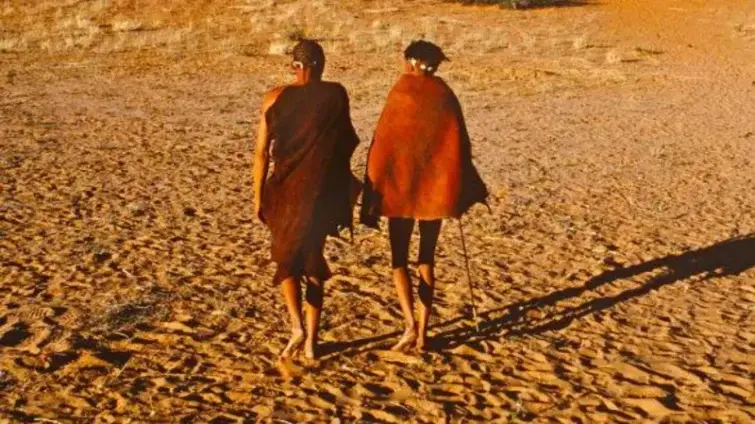Grootfontein, Namibia – The sun beat down on the dusty streets of Grootfontein as a somber legal drama unfolded. Douglas Robert Brook, a 65-year-old British national, stood accused of the most heinous of crimes: sexually exploiting minors from the marginalized San community. The arrest of Brook has sent shockwaves through Namibia, igniting a fierce debate about tourism, cultural sensitivity, and the protection of vulnerable children.
The allegations against Brook are deeply disturbing. He is accused of sexually abusing 16 teenage girls and 14 boys, facing a staggering 38 charges that include rape, indecent assault, and child exploitation. Police reports paint a grim picture of Brook allegedly targeting young children from the indigenous San community in the Otjozondjupa region. He allegedly lured 34 children with sweets and money, convincing them to pose for nude photographs, according to police reports.
Brook’s arrival in Namibia, intended as a holiday, quickly turned into a nightmare. He was arrested on Sunday, and the subsequent search of his camera revealed the alleged nude photographs of the children. The evidence prompted swift action, leading to his appearance in the Grootfontein Magistrate court on Tuesday.
The courtroom was packed as Brook faced the magistrate. The state prosecutor, emphasizing the need for further investigation, requested a postponement. Bail was denied, and Brook was remanded in custody, his fate hanging in the balance. Information Minister Emma Theofelus confirmed to the BBC, “The tourist remains in police custody,” a statement that underscored the gravity with which Namibian authorities are treating the case.
The UK embassy in Namibia has responded cautiously, stating it had “no information beyond what has been reported in the media.” However, within Namibia, the reaction has been one of outrage and condemnation. The Namibian Ministry of Environment and Tourism minced no words, denouncing Brook’s alleged actions as “deeply disrespectful to the cultural heritage of the San community.”
The Ministry’s statement, as cited by Informanté newspaper, made it clear: “It is unacceptable for any visitor, foreign or local, to exploit or objectify indigenous communities or their children for any purpose, including photography.” This stance reflects a growing awareness of the need to protect vulnerable populations from exploitation, particularly within the context of tourism.
The San community, one of the oldest indigenous groups in Southern Africa, faces unique challenges. Their traditional way of life is increasingly threatened, and they often struggle with poverty and marginalization. This vulnerability makes them particularly susceptible to exploitation. The cultural significance of their traditions and the need to respect their heritage cannot be overstated.
Namibia, renowned for its stunning desert landscapes and rich cultural diversity, draws tourists from around the globe. But the case against the British tourist is a stark reminder of the darker side of tourism. It underscores the importance of responsible and ethical travel, of respecting local cultures and traditions, and of ensuring that tourism benefits, rather than harms, local communities.
The legal proceedings against Douglas Robert Brook are ongoing. The pursuit of justice is paramount, not only for the victims but also to send a clear message that such exploitation will not be tolerated. This case serves as a somber call for greater vigilance, ethical tourism, and unwavering respect for all cultures, particularly those most vulnerable. As the case unfolds, further updates will be provided, ensuring transparency and accountability in this critical matter.
Image Source: MYJOYONLINE





















